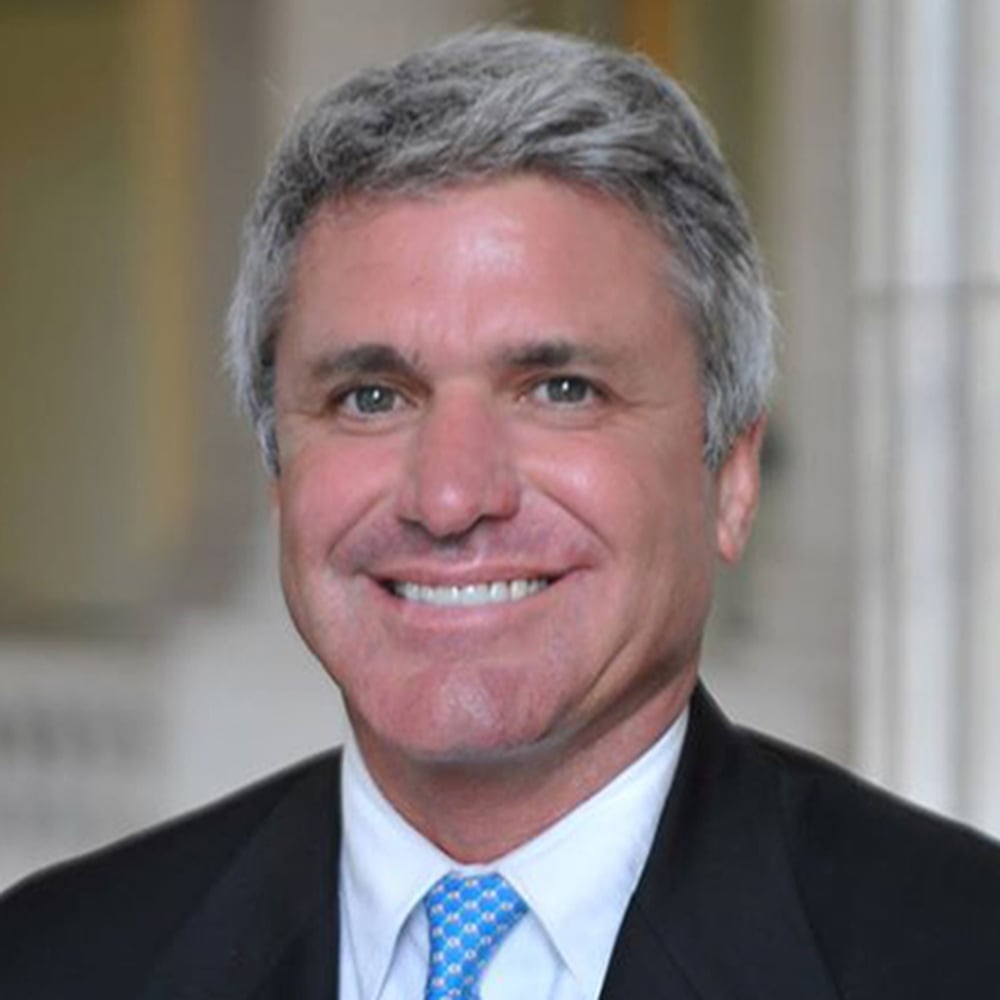Turns out, running for re-election is hard work.
Rep. Michael McCaul does not have to be here, at Carl’s BBQ on the side of a highway, in a wood-paneled backroom, seated at a bare table in front of a stuffed, life-size buck whose antlers hold a sign saying, “NEVER moon a werewolf.”
He doesn’t have to drive east two and a half hours from his home in Austin to find brisket this good, but here is where his voters are. And after the last election, his worst in his 15-year political career, the Republican congressman decided he needs to campaign for them like never before.
McCaul could be forgiven for retiring. In the past four weeks, four of his fellow Texas Republican colleagues have done so — a political phenomenon nicknamed “Texodus” — including two members who represent suburban districts similar to McCaul’s. The Democrats flipped the House in 2018, suddenly making life miserable for GOP members now in the minority, and targeted half a dozen of the members of Congress in Texas, including him. To win, McCaul has to, for the first time, actually try; His once-safe district stretching from Austin to Houston is changing faster than he expected, threatening to throw him out.
But when faced with fight or flight, McCaul chose the former. He changed his campaign staff, including hiring Corry Bliss, who led the top Republican-affiliated super PAC for House races in 2018, as a general consultant. Last quarter, McCaul claimed a personal fundraising record. His team boasted the earliest field program of any incumbent Republican in America, one it says has already knocked on 10,000 doors. In the past week, McCaul met with local chamber of commerce officials, AARP constituents and local journalists. He toured car dealerships. He led a consortium on how to address human trafficking. And he hit three barbecue joints in three days.
“I decided if I’m going to do this again, I’m going to work it hard, maybe harder than I ever have,” McCaul told CNN.
In a 25-minute interview this week, McCaul blamed the Texas Republicans’ drubbing last cycle “in large part” to the top of the ticket. GOP Sen. Ted Cruz lost the big four metropolitan regions — “something no top-of-the-ticket Republican nominee had done since Barry Goldwater in 1964,” who faced native son and President Lyndon B. Johnson, according to a University of Houston study. McCaul noted that Cruz, who was “not as likeable” and unable to “fully” energize his party’s base voters, lost his district to then-Democratic Rep. Beto O’Rourke, who created a following McCaul called “Beto-mania.” (A source close to the Cruz operation responded that McCaul raised more than triple the amount of his Democratic opponent and still “almost lost.”)
[…]
In recent years, the populations of Latinos, African Americans and Asians in McCaul’s district have boomed. Between 2012 and 2017, Latinos grew from 26% to 29% of the population as over 60,000 moved there or were born, according to American Community Survey figures pointed out by Potter. The white population increased but more slowly than other races, and shrunk as a percentage of the district from 58% to 52%.
Rep. Marc Veasey, a Texas Democrat, said the population explosion could yield the state two or three more congressional seats after the next census. But he said that rapid demographic change was just one reason why these suburban seats have become competitive after so long, saying the voters “have really had enough of this President — and Republicans not pushing back against a lot of what they see as wrong for the country.”
Siegel, physician Dr. Pritesh Gandhi and Shannon Hutcheson, a lawyer whose clients include Planned Parenthood, are all vying to be the Democratic nominee to take on McCaul. Democrats are confident that the mix of Trump at the top of the ticket, fundamental demographic changes and a message centering on health care and protecting the Affordable Care Act will flip the seat.
The Democrats also don’t think McCaul is well-known even after winning eight terms in office and call his claims of a reinvigorated field campaign overblown. According to a copy of McCaul’s schedule of the past two weeks obtained by CNN, the congressman had one door-knocking event but canceled it. When CNN toured the block, which included a home hoisting a Trump flag out front, a couple potential voters said they didn’t recognize McCaul’s name, but they would vote for him so long that he was Republican.
I love both the faux-blockwalking story and the Ted Cruz shade. Who says politics is boring? The story is cool and all, but I’m going to boil this all down to a couple of tables:
County McCaul Cadien Diff
==================================
Harris 68,540 22,459 46,081
Travis 37,493 51,400 -13,907
Others 53,750 21,851 31,899
Total 159,783 95,710 64,073
County McCaul Siegel Diff
==================================
Harris 71,717 40,820 30,897
Travis 30,857 80,864 -50,007
Others 54,592 22,350 32,242
Total 157,166 144,034 13,132
Mike McCaul got slightly fewer votes in 2018 than he did in 2012, while Mike Siegel got nearly 50K more votes than Tawana Cadien did. All of the improvement in Siegel’s vote totals came from Harris and Travis counties. The small rural counties in between produced essentially the same totals and margins each year. If Dems can squeeze a bit more out of the two big counties (*), they can win this seat. As before, that’s going to be a combination of relentless voter registration and GOTV, which I can guarantee will involve actual blockwalking. The path forward is clear.
(*) For what it’s worth, Siegel improved slightly on Cadien’s performance in Bastrop County, reducing the margin there from 2,353 for McCaul in 2012 to 1,691. It’s worth expending some effort there, in part because every vote will matter and in part because I at least still have hope that Bastrop will start to go the way of Hays County, but the fat part of the target remains the two biggest counties.

